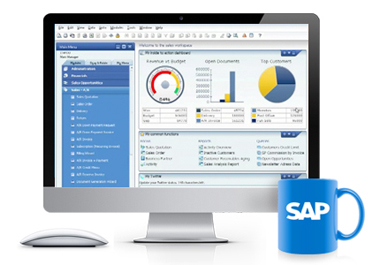Information Systems For Better Integration, Automation and Streamlined Operations
Applications of Information Systems (IS) to a value strategy are generally intended to keep unit costs low. IS had early and significant contributions where it was heavily involved in creating efficiencies in supplier cultivation, logistics, and operations. A number of strategic applications, such as “just in-time inventory systems” for manufacturing and computerized quick response systems in retailing are but a couple of the many examples of IS moving beyond a support function and becoming a partner in creating strategic value by integrating the value chain within an organizations physical boundaries. However, the trend for some time now has been for IS to move outside organizations and interface directly up and down the value chain, integrating and automating much of the communications process. In particular, sourcing, outsourcing, and cosupplier collaboration are three areas of rapid growth in value-chain integration that are being driven by IS.
It is not just the communication channels that are being redefined, but also the products themselves, or at least what the customer thinks the products are. So, some argue strenuously that accurate, readily available information might well be as important to a venture as is capital. The lack of sufficient, current and accurate data can be just as damaging as the lack of sufficient equity, borrowing capacity and/or readily available cash.
Not so long ago, the role of the Information Systems Department (“ISD”) was typically thought to be one of the support elements in a business venture. In recent years, however, the ISD’s status has risen apace with the general acceleration of the entire business/commerce milieu due to its ever increasing power to amass, analyze and distribute information. That is not to say that all information systems perform at their highest potential. Those that have the best designs and configurations for the tasks at hand (the “Top Tier”) are demonstrably more effective than those that must be reconfigured and/or “fine-tuned” to deal with the services/results anticipated by the purchaser or lessee. Thus, it is axiomatic that Top Tier systems are likely to be more cost-effective over time.
For many years, there was a consensus that, for justifiable reasons, ISDs were steadily elevating their standing as important factors in the success and growth of the enterprises they served. But, in recent years, ISDs have also become more involved in streamlining operations and maximizing the potential of the venture as a whole. In today’s business and economic environment it is hard to refute the proposition that ISD is now recognized as a top level asset in the quest for growth and success.
Cornerstone Consulting: Providing Information Systems and Technology
Why do so many small and midsized companies rely on Cornerstone to help their organizations out-perform the local, national and/or international competition with ease? Simply stated, our level of experience is unparalleled. Since 1983 Cornerstone Consulting has been providing state-of-the-art business software systems, as well as related technical support, to small and midsized manufacturing and wholesale distribution enterprises. Cornerstone Consulting’s areas of expertise include, but are not limited to:
- SAP Business One ERP
- Sage Pro ERP
- E-commerce Application
- Mobile Apps
- Analytics
- Internet
- Databases
- Cloud Computing
- Web Design and Development
- Custom Programming
We can show you how your small or medium enterprise (SME) can not only run better but easily out-maneuver, and out-perform the competition. Contact Cornerstone Consulting at 813-321-1300 for information about cutting-edgeg information systems and oustanding software support services.


